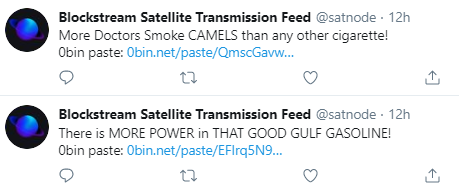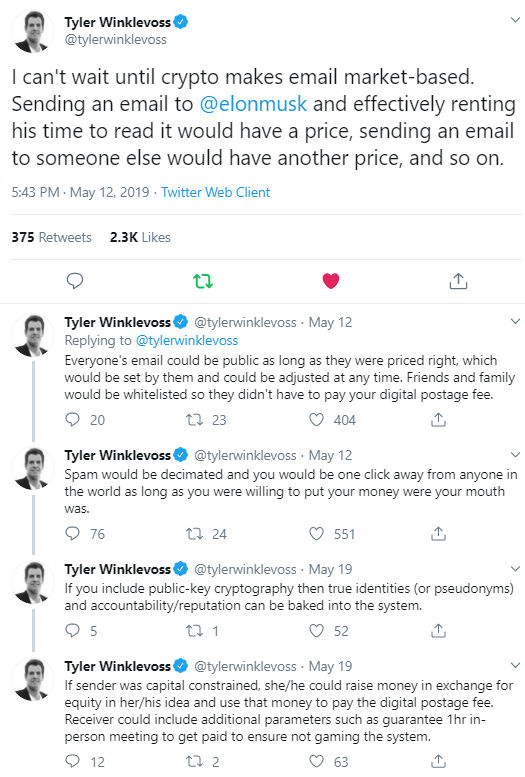On 24 January this year, an individual known by the online handle “Grubles” was woken early in the morning to the sound of thunder and rain outside.
Half asleep, they rushed to make sure a small computer plugged into a satellite on their porch was safe from the rain.
To Grubles’ relief, it was. The sun had yet to rise, but as they were awake already, Grubles took a bleary eyed look at the screen to see what the satellite dish had been picking up.
What the satellite had broadcast was the first of its kind. With the rain pouring down in the background, they began to read, in what Grubles later wrote would made them would feel like a character in Blade Runner.
They were journal entries, from an anonymous individual from a “post soviet” state in East Europe, who was marvelling at their newfound ability to broadcast whatever they wanted all around the world via satellite.
Grubles (@notgrubles on Twitter) posted the journal entries he found, from the individual (who’s now become known simply as “Post Soviet”) online later that day. Here’s an excerpt:
day 2: Still hard to grasp the fact, that I’m blanketing a big part of Earth with my message, on demand, instantly. I’m wondering does anybody reading this message? Maybe a portion of the photons are missing the Earth, and traveling in Space for billions of years.
day 3: I’m curious how long will this trial time last, that I can broadcast myself to the Earth for testnet coins, anyway I’m loving it.
day 4: love you
day 5: I can’t decide which is cooler, to use a satellite for this silly message to reach the surface of the Earth, or using the lightning instant payment network, both feels utterly awesome, I think I will tell this tale for my grandkids someday, maybe in a postcivilization wasteland, but still. Without bitcoin I wouldn’t have too much faith for the future.
day 6: My plan is to create an uncensorable, unbannable site, where everything is allowed to talk about and share, nobody can ban anything for anyone, and nobody can delete anything, even their own posts, I hate when people are posting something on twitter or facebook, and later deleting it. Everybody should stand by their written words.I think Bitcoin, Lightning, IPFS and other technologies are needed to accomplish this, maybe the computational capacity of the network is not enough today, but it will be.
We wrote yesterday of how the very same technology that allowed Post Soviet to write their journal is being used to argue over the best James Bond.
By sending miniscule quantities of bitcoin to the Blockstream constellation of satellites (using a layer of technology above blockchain, called Lightning), any message can be broadcast to anyone with a satellite dish, almost anywhere in the world.
While governments could turn off electricity before to prevent bitcoin from being transacted, now they’d need to destroy or jam a satellite 22,000 miles high (the advancement and proliferation of such technology is ongoing – a key feature of Cold War II – but that’s for another letter).
 Testing the satellite transmission mechanism with some old advertising slogans I’ve been looking at. I’ve a theory that Donald Trump’s tweeting style is inspired by adverts he found persuasive when he was a young man.
Testing the satellite transmission mechanism with some old advertising slogans I’ve been looking at. I’ve a theory that Donald Trump’s tweeting style is inspired by adverts he found persuasive when he was a young man.
Such microtransactions are themselves something electronic banking systems cannot achieve. It’s why until very recently here in the UK, some shops would only accept card payments if you spent a minimum amount. That’s why you can’t purchase an individual article from an online newspaper, and instead must purchase a subscription or find a cunning way to get around their paywall.
But through bitcoin’s Lightning Network, I’ve been pinging pennies all around the world, for fractions of a penny. All sorts have wild and wonderful applications have been built (known as Lapps – Lightning Apps) around it, from casinos that let you gamble microstakes, to online graffiti walls where you write whatever you want and pay a fraction of a penny per pixel.
But I digress. What happens when money and communication get melded together?
A while back, I was taken by an observation made by one of the Winklevoss twins on Twitter, in which he looked forward to the days when it would cost money to send an email:
Ever since the internet gained mass adoption, everybody has assumed that communication is free. More recently they’ve begun to realise that they’re really paying for it with their personal data, and on top of that, because it comes with no financial cost, anybody can send any as much spam to as many people as they like, all of the time.
If communication of the kind Winklevoss describes takes off it, it would effectively introduce stamps (of the kind you put on envelopes) into digital communications. Except the cost of the stamp would not go to a post office, but instead to the person it has been addressed to.
This would completely flip the assumptions everyone has about communicating online. It would also radically change how everybody approaches email (especially the “reply all” function). Our own business here at Southbank Investment Research would have to change significantly, as we have so many email addresses we send content to.
Spam email would need to change significantly too – those Nigerian princes who need your help in transferring vast inheritances would probably contact you a lot less; if they did, they might actually be serious (or just have a budget as inflated as their claims).
Making emails and digital messages cost money would effectively inject a sense of risk into a part of our lives where the trend has so far only made people more careless. I think it would make us more efficient with our words and force better standards of communication; a bit like forcing a government back on to a gold standard. What do you think? [email protected].
I spoke to Dominic Frisby, the financial writer, comedian, and staunch libertarian a while back. He’s big on crypto, and thinks fiat currencies will go “the way of the post office”: they will not collapse, but instead will be slowly abandoned and shrink in usage as people adopt faster and more efficient means of transactions. It’d be pretty ironic if crypto ends up reintroducing a post office to the internet…
All the best,
Boaz Shoshan
Editor, Capital & Conflict
Category: Market updates



